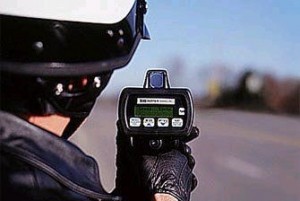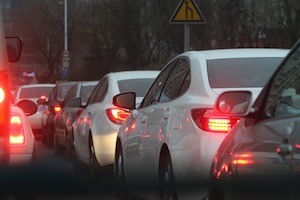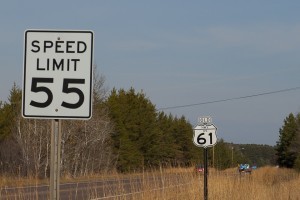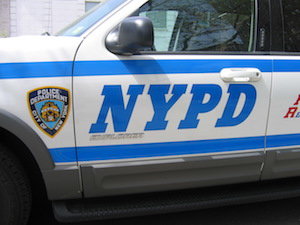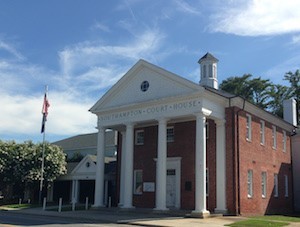
Much to drivers’ chagrin, traffic tickets are big money for towns and villages throughout New York, with the average police officer issuing about $300,000 worth of speeding tickets each year. A recent report from The Buffalo News looked at which villages and towns collected the most revenue from traffic tickets in 2015.
Out of New York State’s more than 1,200 town and village courts, the Town of Wallkill in Orange County ranked Number 1, with more than $3.6 million in revenue. It may seem surprising given the town’s sparse population of just 28,000 residents, but the reason Wallkill rakes in so much money is simple: I-84 runs right through it.
In fact, nearly all of the villages and towns in the top 20 have major thruways that provide a steady stream of revenue from drivers. For example, Southampton and East Hampton, which take the second and third spot for ticket revenue, are both situated around NY Rte-24 (Montauk Highway). The Town of Harrison, fifth on the list, is striped with stretches of I-95, I-287, and the Hutchinson River Parkway.
Below is a list of the Top 20 revenue-generating village and town courts, as compiled by The Buffalo News:
| Town of Wallkill | $3.62 million |
| Town of Southampton | $3.20 million |
| Town of East Hampton | $3.10 million |
| Town of Amherst | $3.05 million |
| Town of Harrison | $2.82 million |
| Village of Port Chester | $2.81 million |
| Village of Hempstead | $2.65 million |
| Town of Greenburgh | $2.57 million |
| Town of Colonie | $2.48 million |
| Village of Freeport | $2.40 million |
| Village of Lynbrook | $2.24 million |
| Town of Tonawanda | $2.14 million |
| Town of Cheektowaga | $2.06 million |
| Village of Valley Stream | $2.01 million |
| Town of Clarkstown | $1.85 million |
| Village of Mineola | $1.78 million |
| Town of Newburgh | $1.75 million |
| Town of Poughkeepsie | $1.75 million |
| Town of Ulster | $1.67 million |
| Village of Garden City | $1.66 million |
A speeding ticket in New York costs at least $150, plus a mandatory surcharge of up to $93, and incurs three points on your license. A conviction for speeding can also increase your auto insurance rates substantially. If you or a loved one has been given a speeding ticket in New York, contact an attorney right away. Hiring an attorney can only help you avoid the most serious consequences of a ticket, but it can also save you a trip to the courthouse. The lawyers of the Rosenblum Law Firm are skilled New York traffic ticket attorneys who can help you avoid the costs associated with a ticket speeding and other driving-related offenses. Call 888-203-2619 or email the Rosenblum Law Firm today for a free consultation about your case.
 Traffic jams are the worst! Nearly every driver feels there’s nothing he or she can do to avoid them and in most cases, that’s true. However, there are things that every driver can do to avoid contributing to congestion on the roads.
Traffic jams are the worst! Nearly every driver feels there’s nothing he or she can do to avoid them and in most cases, that’s true. However, there are things that every driver can do to avoid contributing to congestion on the roads.
